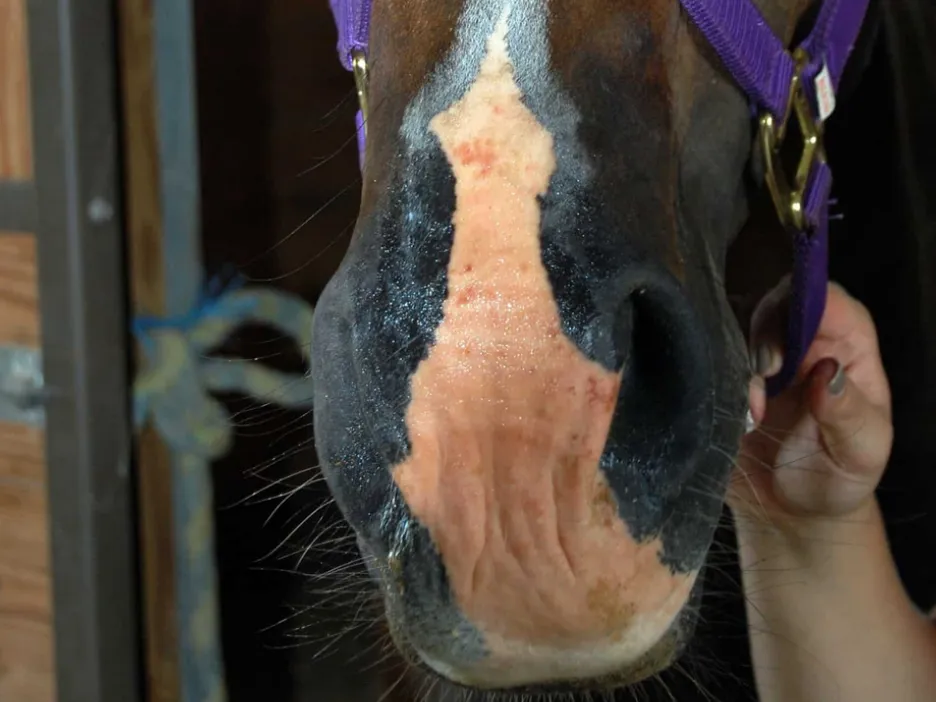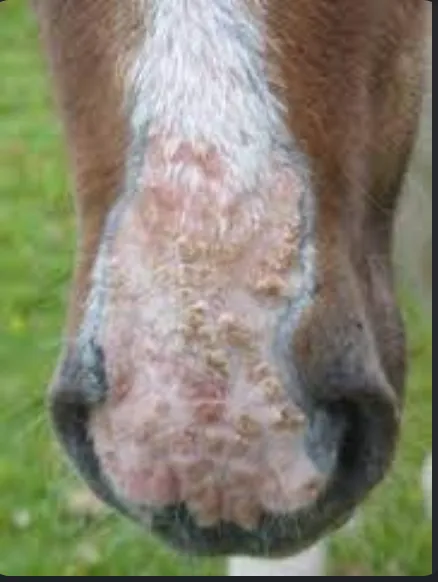A steaming pile of Horse Homeopathy
Brad MacClure - 16th September 2024
I stated on the podcast a few weeks ago that I think I could cover a different horse pseudoscience in each issue, and keep going for an entire year. That was before I looked into it…
Now that I’ve looked into it some more, I think we could do one per issue and literally never get to the end of them. There’s so much out there, I’d wager that by the time I get through them all many more would have popped up, like whack-a-moles! I feel like even making a list of them will be futile, because the list will grow as fast as (or faster than) we could compile it. It’s downright disheartening, but my only hope is that we try to learn critical thinking lessons as we go, in the hope that at some point we don’t have to cover all of it, because we get the gist. Anyhoo… one has to start somewhere, and today I’ve decided to start with the low-hanging fruit of horse homoeopathy.
Okay, don’t laugh, this is serious! I learned years ago that this was a thing. A couple of people I know personally used a thing (I struggle to call it a ‘product’) they honestly believed that worked, called “Sun-eze” (spelling assumed!). I can’t find a product of this name online, but when you search for it, high in the results is a thing called “Sol Plus” (perhaps they had to change their name at some point - it’s not suspicious at all when companies do that, right?), from a company called “Natural Health Hippo”, so down the rabbit hole we go! Turns out, as I hinted, there seems to be no end to this BS, or should I say HS?

Sunburn
My friend told me the product is homeopathic, but it works. My response at the time was that if it’s homeopathic it won’t be doing anything, and if it’s doing anything, it’s not homeopathic. As you may have surmised, it’s supposed to treat sunburn for horses. So, does it work? Well no, it’s homeopathy, so no. Case closed! No, but seriously, let’s have a look at it.
Just to explain, some horses have pink skin, so they’re prone to sun damage, particularly around the nose and muzzle. It’s a real problem, and of course when there’s a problem there’s always a fake solution to help lighten your wallet.

Photosensitivity
The website for Sol Plus™ says you add 25ml to your horse trough. (I guess that means if it’s 30C, that would make it 31C by the time you dose the trough?) This will “treat” all the animals that use that trough, of course. Claimed to contain “equal parts of: Belladonna, China officianalis, Hypericum, Mezereum, and Rhus toxidendron [sic]” (they probably mean ‘toxicodendron’). I mean, I’m sure that’s true, it will have the same amount of all those things, that amount being zero. Which is probably just as well, as they’re mostly pretty toxic herbs. It looks like the logic, based on the “like cures like” idea, is partly to do with the photosensitising effect of these plants. For instance, one of these herbs, hypericum, is also known as St John’s Wort. That’s a plant shown to cause photosensitisation in horses if eaten, so based on the ‘like cures like’, I guess they think tiny quantities in the product cure/protect your horse of/against sun damage. Belladonna is deadly nightshade, and toxicodendron is poison ivy. The toxicity of the plants is the idea of course, because that’s the logic of homeopathy.
We don’t have space or time to delve fully into the idea that eating hypericum makes horses get sunburned. In short, it’s not that simple. It causes photosensitisation, which is not the same as sunburn, even though it sounds like it should be. There’s a good article I found if you’re interested which explains the difference:
Given that hypericum causes photosensitisation, which is much more serious than (and different to) sunburn, this adds another level of stupid to the idea that a miniscule amount in your water trough would heal sunburn. We have fractals of stupid, if you will - stupid all the way down. They do have a separate “photosensitivity kit”, by the way, also homeopathic, so they do know the difference. That kit costs around $200. From that product info:
“Professionally formulated natural horse supplements to be used in conjunction with veterinary management.”
At least they’re not telling you to stop real medication for this serious condition, but they will gladly accept the credit when the real medicine works.
One concern I have is that I can’t ascertain how this product is prepared. If it’s properly homeopathically prepared, and I’m assuming it is, then we know it will literally be just water. So it’s just a waste of money. If it does indeed have the herbs in it in significant amounts, then it’s not really homeopathy, and we still need to figure out if there is possible harm. If there’s enough to cause an effect, the effect cannot be good.
Weasel words
From the website:
“it takes 7-10 days for the remedy to take effect”
So, about how long it takes to recover from a mild case of sunburn then?
“Promotes a normal immune response to sun exposure from the inside out, reducing the need for creams and nose guards.”
Need I explain? “Promotes normal immune response”, are you kidding? The ‘normal immune response’ is inflammation, by the way. I bet they also sell an anti-inflammatory…oh look they do, brilliant! ‘Promotes’ is a weasel word. It’s unquantifiable as to what it’s actually doing, but whatever happens we want the credit.
Here’s their disclaimer:
“Our equine remedies are formulated to support a horse’s natural immune response. We do not claim to treat, medicate or cure any health conditions. If you are worried an animal may be in pain or suffering, please contact your veterinarian.”
“Support” is another weasel word of course. Again, it means nothing, sounds good, but you can’t pin down what it’s doing. Just avoid ragwort and St John’s wort, (and ironically remedies that actually claim to have that in them) and take the advice in the last sentence of their disclaimer.
The company whose product I focused on here has a plethora of homeopathic remedies and products, and they’re just one of many companies that sell many remedies. They all seem to be varying degrees of cagey about their ingredients, and the quantities. Of course, we know why. At the end of the day, none of that matters if you believe in magic, because basically that’s what you’re being asked to do here. I would love to have the time and resources to explore the more interesting question: why do people believe that this stuff works? Between things like confirmation bias, survivor bias, and maybe the halo effect, and all the appeals to authority, or antiquity… I suspect the answer will be “it’s complicated”.